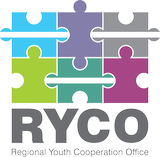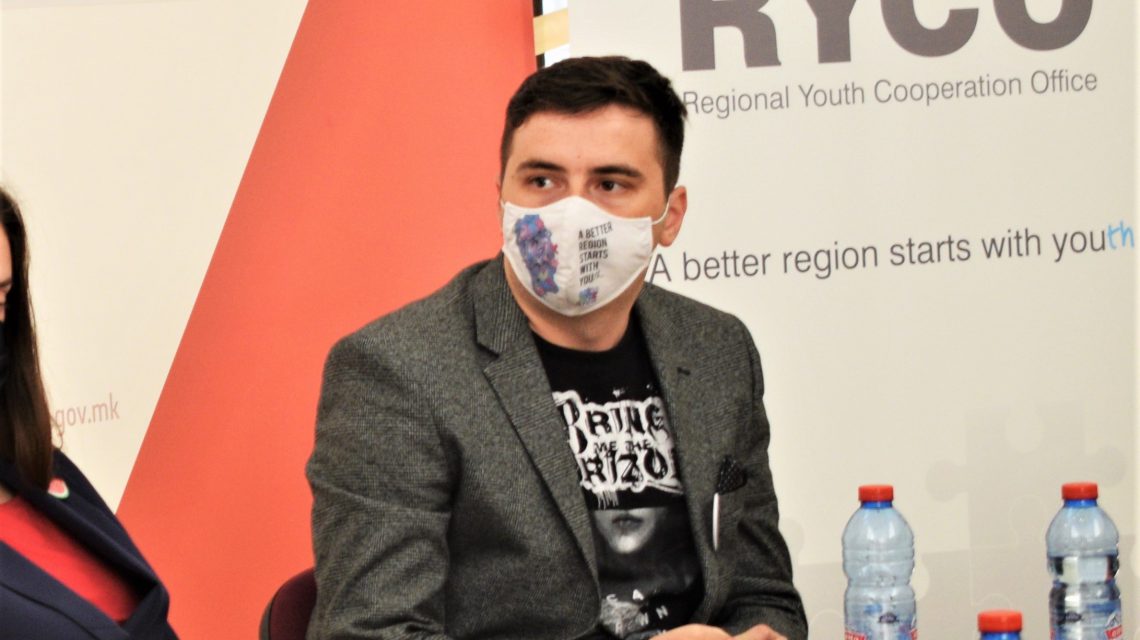Op-ed by Vladimir Gjorgjevski, Former Youth Representative of North Macedonia in the RYCO Governing Board
If someone would say to the young people who participated in the projects at the early beginnings of theFranco-German Youth Office in 1963 that they are participating in long-term peacebuilding, intercultural cooperation and joint future, they would consider it as madness, conspiracy theory or spending money on an impossible mission. On the first hand, that can maybe be perceived in such a fashion – how could one youth office, particularly of two countries whose peoples for centuries had been blood enemies and even started the Second World War, support peace, cooperate and have a common future?
How to persuade a young man who lost his parents or relatives in the war, to cooperate with people from the “other side” and consider them as friends? Unfortunately, these painful questions don’t have a short and simple answer. But lessons should be taken from the past and history so that the same mistakes are not repeated, in order to build a better future where young people would like to live.
As a young man born and raised in a multicultural environment who has felt the whirlwind of the war on his own skin, with lost and traumatized relatives and friends from it, while working in a multicultural youth organization, I personally know how long and difficult the processes of building peace, intercultural cooperation and reconciliation is.
However, over the past decade, studying and working in many places with people from different cultures and nationalities, I convinced myself and witnessed with my own eyes that intercultural societies do not only function well, but that different cultures, if recognized and accepted, bring huge benefits to the society. While studying youth work in the children’s village of Pestalozzi in Switzerland, where thousands of children whose parents died in the war have lived and studied, I convinced myself that peace, quality education and intercultural cooperation are the most important values for which all invested funds are returned back in the society many times over. Quality education based on values, competencies and opportunities can unite all citizens regardless of their affiliation.
Historically, the results of investing in youth cooperation are highly visible on the ground between the citizens of France and Germany for which there are now no borders. Young people work together and function perfectly united under the banner of the European Union, whereas past wars and hatred remain in the memories of the elderly.
Unfortunately, the Balkans are still considered as a “powder keg” that can explode in many places at any time and for a bunch of reasons. No one needs a region full of intolerance, hatred and problems, even those young people born in the region who unfortunately emigrate in increasing numbers and many of them do not see their future here.
The European Union, a big supporter of the Western Balkans, clearly communicates: First solve your problems and disagreements at home and with your neighbors, and then you can join our family. That the EU enlargement process with the integration of the Western Balkans is not just an empty promise shows the so-called Berlin process that has counted more results so far.
One of the most concrete products in this process is the functioning of the Regional Youth Cooperation Office (RYCO) which started working in 2016 with the signing of the Agreement on the Establishment of RYCO by the Prime Ministers of the six Contracting Parties (Albania, Bosnia and Herzegovina, Kosovo*, Montenegro, North Macedonia, and Serbia). Then, history happens, but this time a history of regional cooperation where young people are in the focus of attention and decision-making, just as the RYCO slogan says: “A better region starts with YOUth”.
RYCO is based on the principle of the co-management system where the Governing Board, composed of one youth representative (elected by the youth organizations in the respective Contracting Party) and one institutional representative in charge of youth from each Contracting Party take jointly all strategic decisions for the functioning of the organization by consensus, in order to implement the best possible decisions in the interest of youth in the region. Having the youth representatives on an equal place and equal say with the institutional representatives in the highest decision-making body of RYCO is a confirmation that the young people in the region have the capacity to make the best decisions about their present and future, to take responsibility and work tirelessly for their common objectives. Although being a Youth Representative in the RYCO Governing Board is a voluntary engagement, it requires many hours on a daily basis spent in consultations with youth, youth organizations and institutions, as well being constantly informed about the political situation in the region in order to make the best decisions and advocate for the best youth interests.
An additional body at RYCO is the Advisory Board composed of two members from each Contracting Party, experienced in youth work and representatives of international organizations and institutions, that provide strategic and expert advices to the RYCO Governing Board and the Secretariat on how to improve the decision making-processes as well as the programmatic and operational work of the organization.
The execution body of RYCO is the Secretariat which is based in Tirana, Albania, supported by the six Local Branch Offices based in the six capital cities of the Western Balkans, with a total of 52 employees at the moment.
RYCO’s success is confirmed by the recent European Union progress reports for candidate members, which affirm that RYCO is one of the most successful regional initiatives coming out as a direct result of the “Berlin Process”, offering new opportunities for young people, intensifying regional cooperation and the prosperity of the Western Balkans. International donors and partners are increasingly recognizing the success of the organization and because of that the operational budget and field activities have increased over 3 times since the establishment of RYCO.
Currently, in addition to implementing youth exchanges and training activities awarded to youth organizations and high schools through RYCO Open Calls for Project Proposals, several programs for volunteering, social entrepreneurship, peacebuilding and intercultural cooperation are implemented.
RYCO is not just an organization that offers new opportunities for young people to meet, learn and collaborate. It is a platform that in the long run changes narratives, breaks stereotypes, opens borders and makes the Western Balkans an attractive place for cooperation and living. The development of the region is possible only if it is interconnected and it truly cooperates.
Young people are confirming that they are the biggest driving force and the engine of positive changes when they are truly involved and consulted on issues that directly affect them. I hope that the good example set out by the Youth Representatives’ involvement in the co-management governing system of RYCO, the friendships created there and during the RYCO supported projects will serve as an inspiring example to the Western Balkans citizens, especially youth. Sustainable social changes in the region can only happen when its citizens are engaged, united and committed to honest cooperation.
In conclusion, I believe that such initiatives will encourage all political actors and decision-makers to provide more spaces and opportunities for young people for greater direct involvement in all political and social processes, ideally through the co-management principle of decision-making, particularly on topics of youth interest. That being said, comprehensive support by functional laws, policies, mechanisms and programs will create long-lasting sustainable social impact for building an enabling and prosperous region where the young people would like to live.
Disclaimer: This article is written by Vladimir Gjorgjevski, Former Youth Representative of North Macedonia in the RYCO Governing Board. The views, information and opinions expressed in this article belong solely to the author and do not necessarily represent those of RYCO.
_______________________
*This designation is without prejudice to positions on status and is in line with UNSCR 1244 and the ICJ Opinion on the Kosovo Declaration of Independence.



